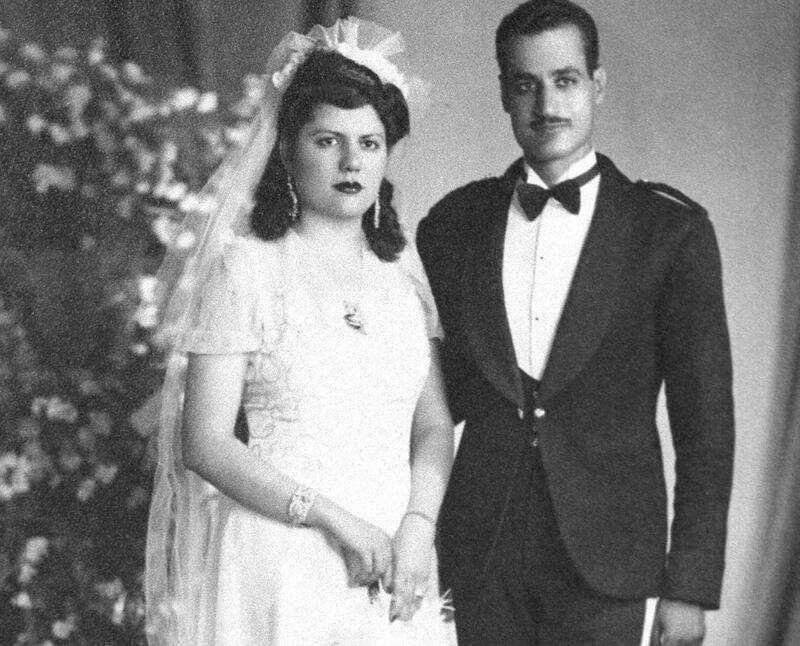"There was always some kind of weapon at home, some big, like a cannon, that I couldn't put away in a drawer," writes Tahia Nasser, the wife of Egypt's late president Gamal Abdel Nasser. "I kept it in the corner of the dining room but it didn't stay long. After a day or two it would be gone and I would relax, but then another would arrive."
There are often differing accounts of prominent historical figures, biographies written by scholars in their ivory towers or memoirs by people that knew them best. I have always been drawn to the latter, whether I like the person in question or not.
At a time when everyone is talking about Arab revolutions, I couldn't help but go back to the life of Nasser, who was so associated with change in his time. The success or failure of this "change" I leave to the political scientists. But a personal memoir gives us a new insight into someone we grew up idolising, then criticising, and whenever convenient, reappraising again. I know I have done that with many historical figures.
Zekrayat Maou (Memories with him), by Tahia Gamal Abdel Nasser, is one such memoir. After two previous attempts, one while her husband was alive and one after his death, Mrs Nasser has finally finished writing about her 26 years as the wife of the former Egyptian president and chief symbol of the pan-Arabism movement of the 20th century. Published this year, the book is dedicated to her youngest son, Abdel al Hakim Nasser, who asked her to write it as a way to get to know his father, who died in 1970.
It is worth pointing out that it is far more common for the children of Arab figures to speak openly about their fathers and mothers than it is for spouses. Wives often keep to themselves, mainly out of respect for the memory of their loved ones. But I am glad Mrs Nasser has broken her silence.
She married in 1944, admitting that she had fallen for the "man in uniform". "He agreed with my brother ... and said he didn't want to marry me until my older sister was married first," she writes. The sentence evokes a bygone era when old marital traditions still prevailed in the Middle East. Of course, in some conservative families, they still do.
The narrative veers from the private to the political and historical: from their nights at the cinema and how Nasser preferred to book seats ahead of time, to the smuggling of arms and secret meetings of military officers at their home in the middle of the night. And how she was kept in the dark about plans for a revolution until she heard gunfire echoing from the king's palace, and tanks rolled onto the streets of Cairo on July 22, 1952. She writes that at the time, she wept.
Struggles with family illnesses, Nasser's sense of humour, his last moments, and even the most private discussions between wife and husband are shared with an almost brutal honesty that is not common in Arab memoirs, certainly not about political and military figures. What emerges is a fascinating account of Nasser the husband, the father and the grandfather, and the image he portrayed, and how desperately he wanted to live up to it.
It becomes clear just how important it was to him, like to many in this region, to be a "father" to his people. I can understand that. We are brought up in our culture to respect our fathers, often obeying them unquestioningly even when we know they are being too tough, too demanding or even unreasonable. But that is also changing, as the younger generations have shown in the past few months. They no longer just accept authority without question. Too many leaders have taken their patriarchal tendencies too far.
Nasser wrote his own memoirs, at least twice, but nothing written by him ever resonated with me in the way his wife's words did.
Some passages in Mrs Nasser's memoir left me feeling like an intruder. But I'm still glad I read it. Even for those with little interest in the life of this historic leader, it gives a rare insight into the Arab men of our fathers' time, and the kind of husbands and fathers they were.





